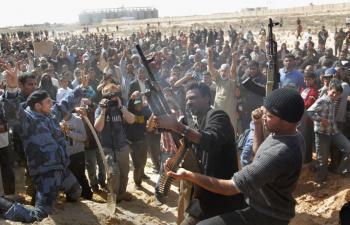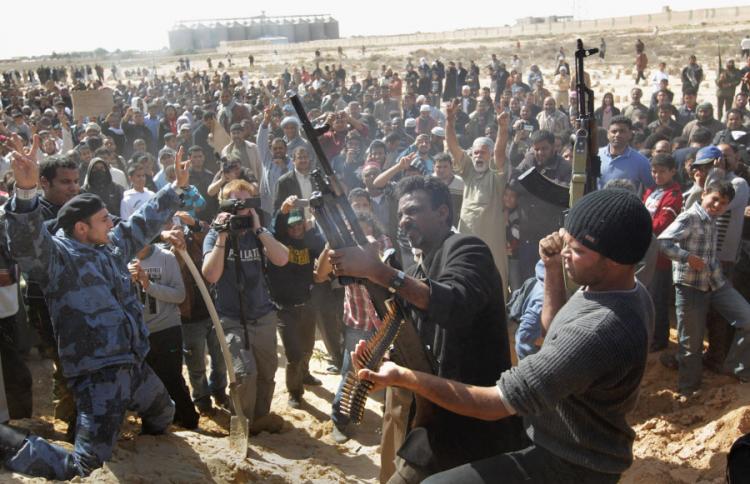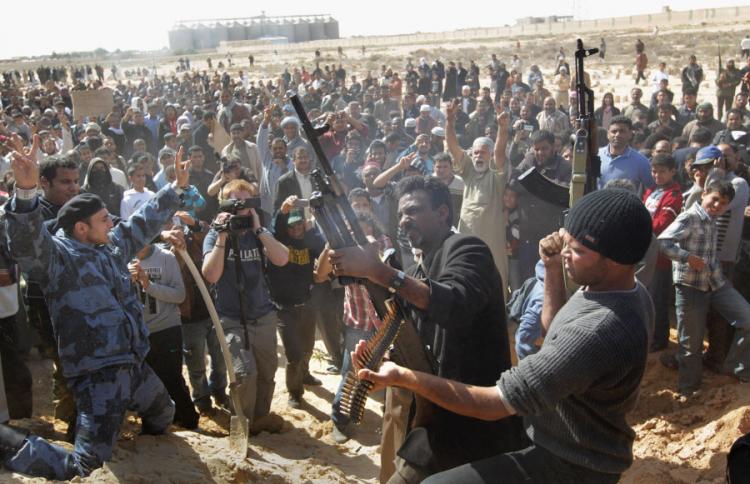Caution Precedes Military Force in Libyan Crisis
Rebels in Libya opposing Moammar Gadhafi are asking the United States and NATO for help to topple the regime, however the United States is reluctant to provide more weaponry that might be turned against us in the future.

Rebel fighters shoot into the air during a funeral for slain comrades on March 3, in Ajdabiya, Libya. At least 14 people died reportedly in fighting in Brega, Wednesday when rebels fought back an offensive from troops loyal to Pres John Moore/Getty Images
|Updated:
Joshua Philipp is senior investigative reporter and host of “Crossroads” at The Epoch Times. As an award-winning journalist and documentary filmmaker, his works include “The Real Story of January 6” (2022), “The Final War: The 100 Year Plot to Defeat America” (2022), and “Tracking Down the Origin of Wuhan Coronavirus” (2020).
Author’s Selected Articles






